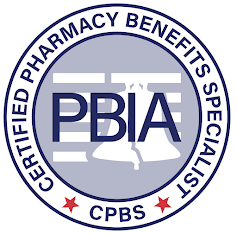Employers seeking to avoid cost-shifting even as expenses continue to rise and other notes from around the interweb:
- Employers seeking to avoid cost-shifting even as expenses continue to rise. As employers face rising costs, many are looking to rethink plan designs rather than emphasize shifting expenses to workers, according to a new WTW report. WTW released its 2024 Best Practices in Healthcare Survey on Thursday, which polled 417 employers representing 6 million workers. It found that these firms are expecting costs to balloon by 7.7% in 2025, compared to an increase of 6.9% in 2024 and 6.5% for 2023. Despite the increase, however, only 34% told WTW that they intend to shift those costs to employees by raising premiums. Twenty percent said they will push high-deductible health plans or account-based coverage to address costs. Instead, 52% said they intend to roll out programs that reduce total costs, and 51% said they would use plan designs and network models to steer workers to lower-cost and higher-quality providers.
- Monopoly Round-Up: Lina Khan, Pharma Middlemen and “Tasty Rebates”. By 2019, Sanofi was giving OptumRx, one of the biggest PBMs, 80% of the list price of Lantus just to be the preferred insulin for its patients. That’s just $64 going to Sanofi for the drug, and $339 going to OptumRx as a refund. Now, you might think that’s not a big deal. I mean, a PBM works for an insurance company, and you would think insurance companies have an incentive to keep pharma prices low. After all, insurance companies take a monthly payment from patients, and then pay for most medical expenses. A drug cost is an expense; therefore they’d like that to be lower. So, you’d imagine that the $339 refund is just a way of lowering the price to the patient. But here’s where it gets nasty.
- Kentucky sues PBM, alleging it had a role in the deadly opioid addiction crisis. The lawsuit Attorney General Russell Coleman filed this week in state court claims St. Louis-based Express Scripts and its affiliated organizations colluded with opioid manufacturers in deceptive marketing schemes to increase sales of the addictive drugs. The result was an epidemic of “overdose and death caused by an oversupply of opioids flooding communities from powerful corporations who sought to profit at the expense of the public,” the suit says. Express Scripts responded Friday that it has long worked to combat opioid overuse and abuse and will “vigorously contest these baseless allegations in court.” Government lawsuits against pharmacy benefit managers are the latest frontier – and maybe the last big one – in years of litigation over the worst drug epidemic the U.S. has ever experienced. The class of drugs is linked to about 75,000 deaths in the U.S. in the 12 months that ended April 30.
- PBM 101: Manufacturer Copay Assistance Programs. Alternate Funding Programs, such as copay assistance programs (CAPs), are offered by manufacturers on some brand name medications to lower patients’ out-of-pocket costs. While the focus is on removing barriers, if not managed, these programs can circumvent the formulary and the plan design’s ability to steer members toward lower cost and effective therapies. In response, Pharmacy Benefit Managers (PBM) have developed programs that plan sponsors can opt into. PBMs either manage their own programs or outsource all or a portion of their programs. One such program is manufacturer copay assistance programs. CAPs are non-need-based programs for those on commercial or private insurance. PBMs typically manage CAP in two ways: accumulator programs and/or variable copay programs.
